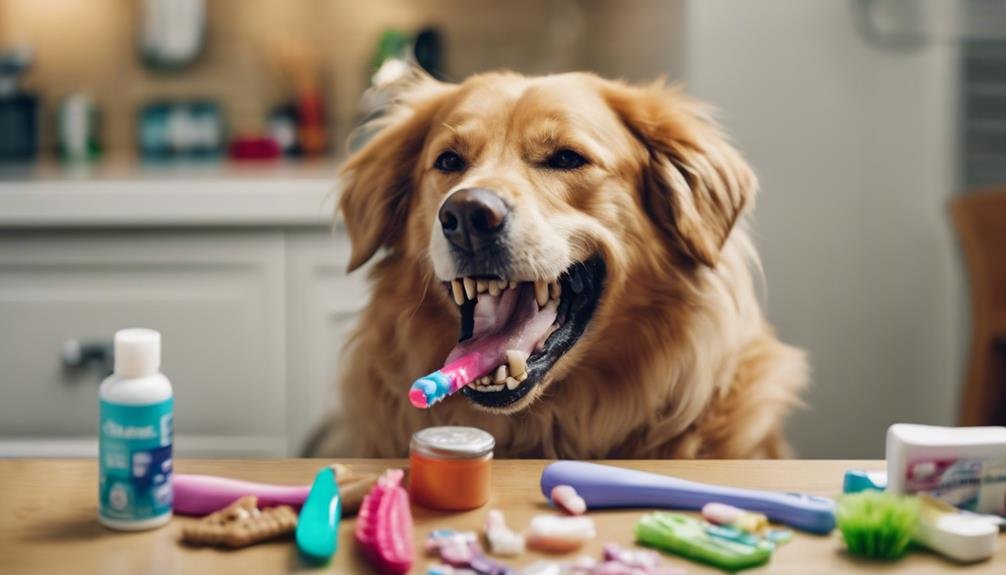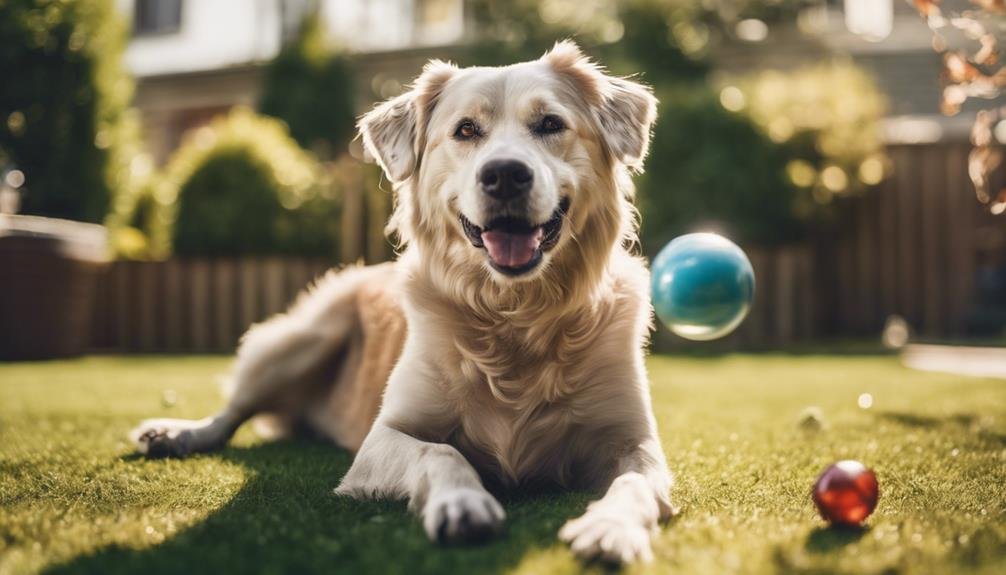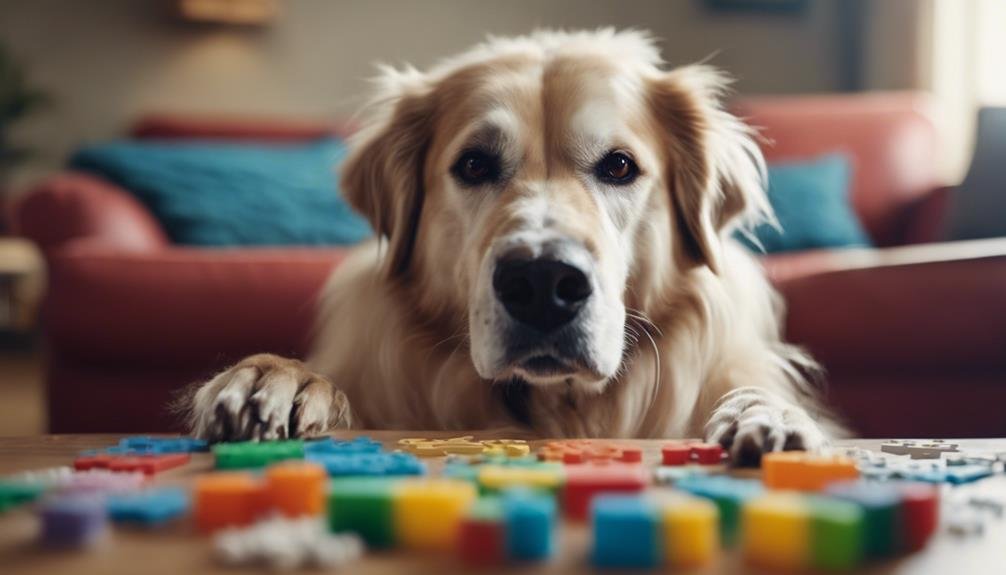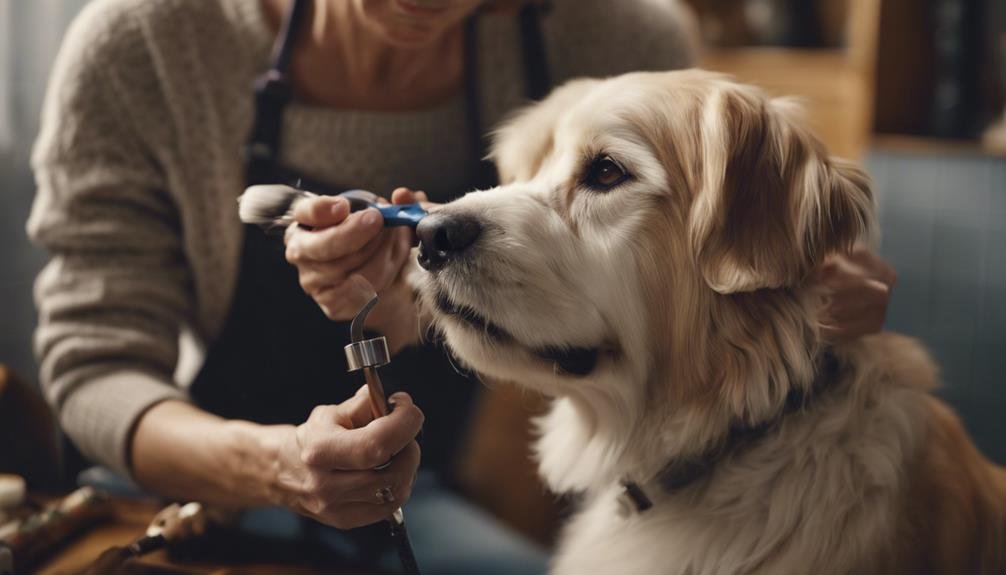As dogs gracefully transition into their golden years, a meticulous approach to their care becomes paramount. Understanding the unique needs and challenges that senior dogs face is essential in providing them with a fulfilling and comfortable lifestyle.
With a focus on tailored nutrition, specialized veterinary support, and mental well-being strategies, the journey of ensuring your canine companion's golden years are as good as gold is multifaceted.
By exploring the ten key ways to enhance your dog's quality of life during this phase, caregivers can forge a path towards holistic care and companionship that honors the bond shared with their aging pet.
Key Takeaways
- Tailor care to meet senior dog's specific needs for optimal health and well-being.
- Regular vet check-ups and screenings ensure quality of life and early issue detection.
- Adjust nutrition, exercise, and supplements to support aging dog's changing requirements.
- Prioritize mental care, bonding, and a peaceful environment for a happy, golden senior phase.
Senior Dog Wellness Care
In ensuring the optimal health and well-being of senior dogs, prioritizing comprehensive wellness care is fundamental. This includes tailored nutrition, regular exercise, and mental stimulation.
Senior dogs may require adjustments in their diet to meet changing nutrient needs. Consulting a veterinarian for appropriate dietary recommendations is crucial.
Daily exercise should be adapted to accommodate their mobility and energy levels, aiming for at least 30 minutes of activity.
Providing mental stimulation through interactive toys and consistent routines can help address cognitive changes.
Veterinary Check-ups and Screenings
When focusing on the health maintenance of senior dogs, ensuring regular veterinary check-ups and screenings is paramount. These visits play a crucial role in monitoring your furry companion's well-being and detecting any health issues early on.
Here are some key aspects to consider:
- Regular Wellness Exams: Scheduled every 6 months to assess overall health status.
- Annual Lab Work: Including blood cell count and chemistry profile around age 7 for comprehensive health evaluation.
- Additional Screenings: Such as thyroid tests and eye exams may be recommended to address specific age-related concerns effectively.
Dental Health Maintenance

Regular dental care is essential for maintaining the overall health and well-being of senior dogs. Annual cleanings and exams play a vital role in preventing dental diseases that can impact a dog's quality of life. It is recommended to start dental care early, around age 3, to establish good oral hygiene habits.
Small breed dogs may require more frequent cleanings due to their predisposition to dental issues. Proper dental hygiene not only contributes to the dog's overall health but also ensures their comfort. Regular check-ups with a veterinarian help identify any dental issues promptly, allowing for timely intervention and treatment.
Tailored Nutrition Plans
Tailoring nutrition plans to meet the specific needs of senior dogs is essential for promoting their health and vitality in their golden years. To ensure your senior dog gets the best nutrition, consider the following:
- Caloric Requirements: Adjusting calorie intake based on activity level and metabolism helps maintain a healthy weight.
- Nutrient-Rich Diets: Providing balanced meals with essential nutrients like protein, vitamins, and minerals supports overall well-being.
- Special Dietary Considerations: Addressing any medical conditions such as kidney disease, arthritis, or dental issues with tailored diets can improve quality of life.
Consulting with a veterinarian to create a personalized nutrition plan can help your senior dog thrive in their golden years.
Beneficial Senior Dog Supplements

To complement tailored nutrition plans for senior dogs, incorporating beneficial supplements can further support their overall health and well-being in their golden years.
Joint supplements containing glucosamine and chondroitin can help maintain mobility and alleviate arthritis symptoms.
Omega-3 fatty acids promote healthy skin and coat, reduce inflammation, and support cognitive function.
Probiotics aid in digestion and gut health, which can be beneficial for seniors with sensitive stomachs.
Before introducing any supplements, it is crucial to consult with a veterinarian, especially if the dog is on medication.
The vet can provide guidance on the proper dosage and administration, ensuring the supplements are safe and effective for the individual pet's needs.
Adapted Exercise Routines
Adjusting exercise routines to cater to the changing mobility and energy levels of senior dogs is essential for maintaining their overall health and well-being. To ensure your senior dog stays active and healthy, consider the following adapted exercise routines:
- Low-Impact Activities: Choose gentle exercises like short walks, swimming, or stretching to reduce strain on aging joints.
- Mental Stimulation through Exercise: Incorporate interactive toys or puzzle games during exercise sessions to engage your senior dog mentally.
- Regular Monitoring and Adjustment: Keep track of your dog's response to exercise and adjust routines accordingly to prevent overexertion and ensure enjoyment.
Mental Stimulation Techniques

Implementing engaging mental stimulation techniques is crucial for enhancing the cognitive well-being of senior dogs. As dogs age, keeping their minds active can help prevent cognitive decline and promote overall mental health. Here are some effective techniques to provide mental stimulation for your senior canine companion:
| Mental Stimulation Techniques | Benefits |
|---|---|
| Puzzle Toys | Encourages problem-solving skills |
| Scent Games | Stimulates the sense of smell and mental alertness |
| Training Sessions | Provides mental challenges and strengthens the bond |
| Interactive Feeding Toys | Promotes cognitive engagement during mealtime |
| Hide and Seek Games | Enhances memory and keeps the mind active |
Compassionate End-of-Life Planning
As senior dogs age, thoughtful consideration and planning for their end-of-life care become increasingly important to ensure their comfort and quality of life. When preparing for this inevitable stage, here are key considerations to keep in mind:
- Open Communication: Discuss end-of-life wishes with your vet to understand available options and make informed decisions.
- Palliative Care Focus: Prioritize palliative care that emphasizes comfort and maintaining the highest possible quality of life for your beloved pet.
- Seeking Support: In challenging times, seek support from professionals or support groups to navigate the emotional aspects of end-of-life planning and decision-making.
Bonding Activities and Grooming

Engaging in bonding activities and maintaining regular grooming practices are essential components of caring for senior dogs to promote their overall well-being and strengthen the human-canine bond. Bonding activities such as gentle walks, puzzle toys, and cuddle sessions can enhance the emotional connection with your aging furry friend. Additionally, proper grooming not only keeps your senior dog looking and feeling good but also helps you monitor their health closely. Regular brushing, nail trims, and dental care are crucial aspects of grooming for senior dogs. By incorporating these activities into your routine, you can ensure a happy and healthy golden age for your beloved companion.
| Bonding Activities | Grooming Practices | Monitoring Health |
|---|---|---|
| Gentle walks | Regular brushing | Observation of skin |
| Puzzle toys | Nail trims | Dental check-ups |
| Cuddle sessions | Dental care | Coat condition |
Privacy and User Experience Considerations
Considering the importance of safeguarding user data and enhancing the overall browsing experience, prioritizing privacy measures and user-centric design elements is paramount for websites catering to pet owners seeking information on senior dog care.
To ensure a seamless and secure user experience, websites should focus on the following:
- Implementing robust data encryption protocols to protect user information.
- Offering clear and transparent privacy policies to build trust with visitors.
- Providing easy-to-use privacy settings that give users control over their data.
Conclusion
In conclusion, implementing a holistic approach to senior dog care can significantly enhance the quality of life for aging canine companions. This approach includes tailored nutrition, regular veterinary check-ups, mental stimulation, and compassionate end-of-life planning. By prioritizing their well-being and addressing their evolving needs, pet owners can ensure that their senior dogs enjoy a comfortable and fulfilling golden years.
Embracing proactive measures and informed decision-making is key to providing a supportive environment for elderly dogs.




